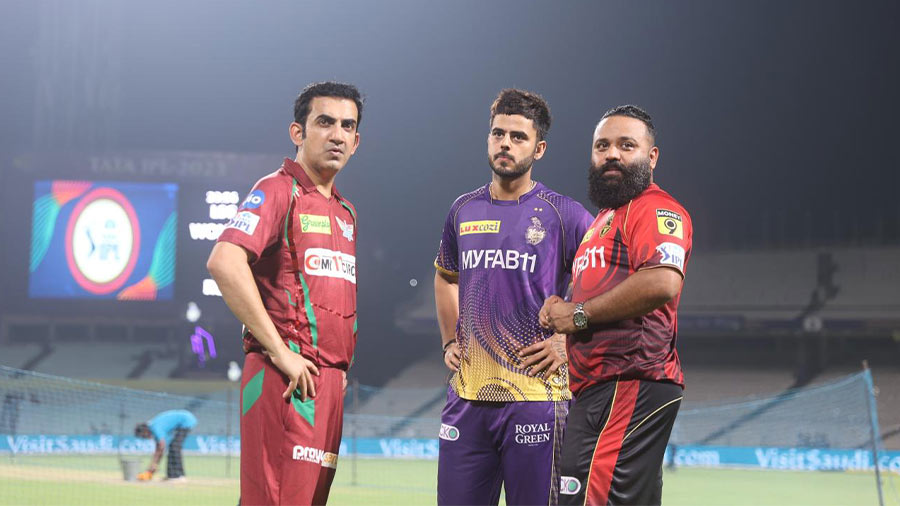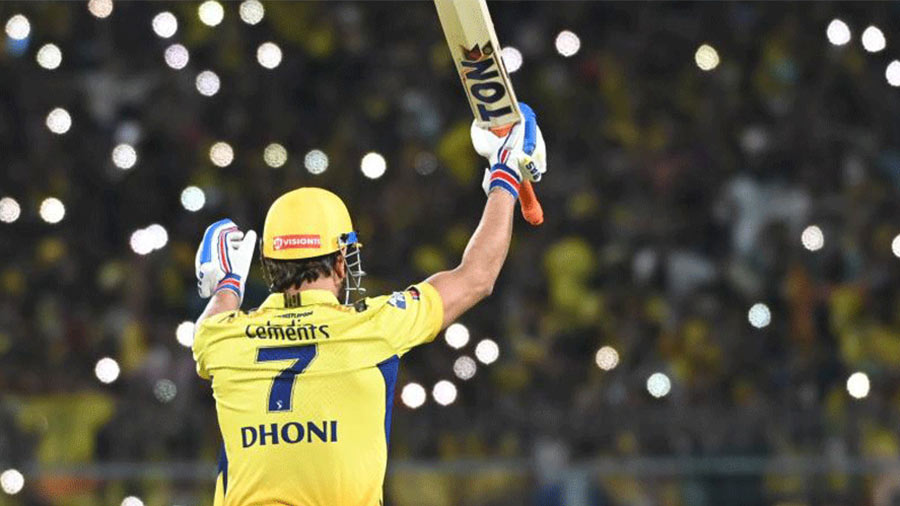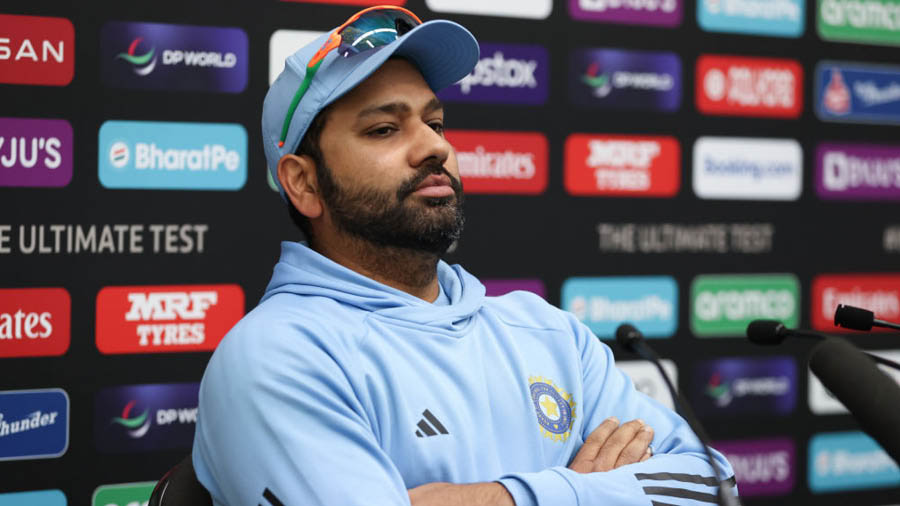With the exception of Virat Kohli (and the IPL team owners), only one man has been a part of a single IPL franchise in all its 16 seasons till date. That man is A.R. Srikkanth, the global head of talent scouting and player acquisitions for the Kolkata Knight Riders (as well as the other franchises operating under the Knight Riders banner). Born and brought up in Bengaluru, Srikkanth, 38, is the one responsible for rummaging through hours of footage and piles of data to come up with that one tip or trick that can change the game. According to former KKR assistant coach Simon Katich, Srikkanth is also “two years ahead of anyone else as far as spotting talent is concerned”.
After Rinku Singh hit five sixes off five balls to pull off the impossible against the Gujarat Titans (GT) in Ahmedabad in early April, everyone on the KKR bench jumped in joy and rushed onto the field to congratulate Rinku. Everyone except Srikkanth, the man who had first spotted Rinku as a potential star for KKR. Just like most things on the pitch, Srikkanth, who has strategised for more than 750 T20 games already, knew what Rinku was capable of. What seemed to the rest of the world as a miracle was for Srikkanth a validation of his instinct.
With another gruelling IPL season coming to an end, My Kolkata caught up with Srikkanth over a video call to pick his brains on how to spot talent, how cricket analytics works, how Mahendra Singh Dhoni can be dismissed and much more.
Edited excerpts from the conversation follow.

‘You should never think that you know everything about the game’
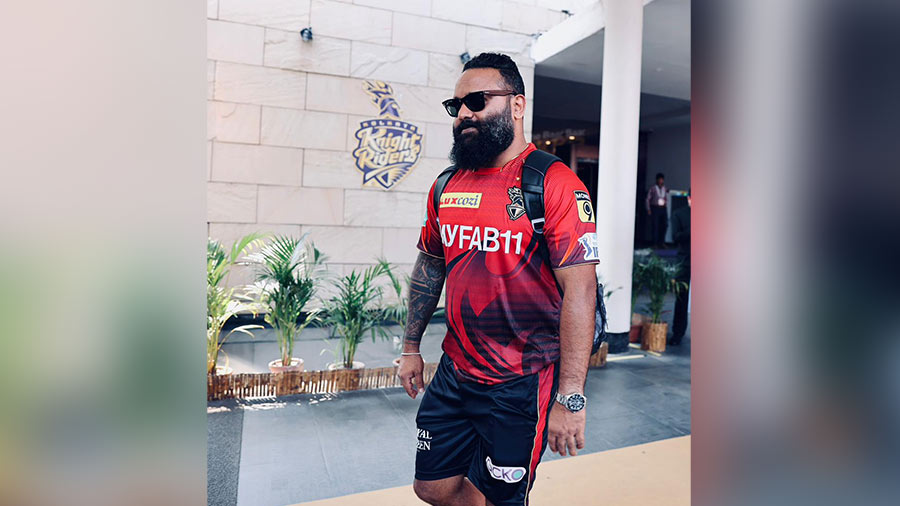
Srikkanth values the importance of learning from anything and anyone Courtesy AR Srikkanth
How did you start off at KKR and what were the initial years like? How has your role and relationship with the franchise evolved over time?
Before KKR, I had played cricket at a competitive level during stints with the Selangor Cricket Club in Malaysia as well as the Royal College in Colombo. My first analytics assignment was actually in a game involving the New Zealand A team, where Trent Boult was making his debut.
Working for KKR was one of my first full-time jobs, so I jumped right into it. I didn’t learn cricket analytics from anyone. I learnt it on the go without any course. I also picked up a lot of things from the coaches and support staff that I worked with.
Over time, I’ve realised that I need to be swift and open to learning from anyone and anything. When I started off, analytics was very basic. The IPL also was like a carnival, we didn’t really know what to expect from it. My role evolved with the game, often on a trial and error basis.
But the one thing that has stayed constant is my urge to be competitive and successful.My motivation has always been to put KKR into the title picture. The most important lesson I’ve picked up during my time as an analyst is that the game can always surprise you. Which is why you should never think that you know everything about the game or that you’ve figured everything out.
Tell us about your work on matchdays.
On matchdays, I typically study the opposition by looking at their in-form batters and bowlers and how to best neutralise them with the resources at our disposal. All plans have to be made in accordance to the skill sets of our players. I have a rough idea of what I want to do before each game, but a lot of things change while the game is going on. I try to stay one step ahead of the game by suggesting things that are simple but effective. Such as moving a particular fielder to a particular position to cut off an angle. Or telling a batter to expect some lower full-tosses from a bowler who likes bowling yorkers but can miss their length.

‘Dhoni got out to Varun Chakravarthy three times in nine balls. All those wickets were planned’
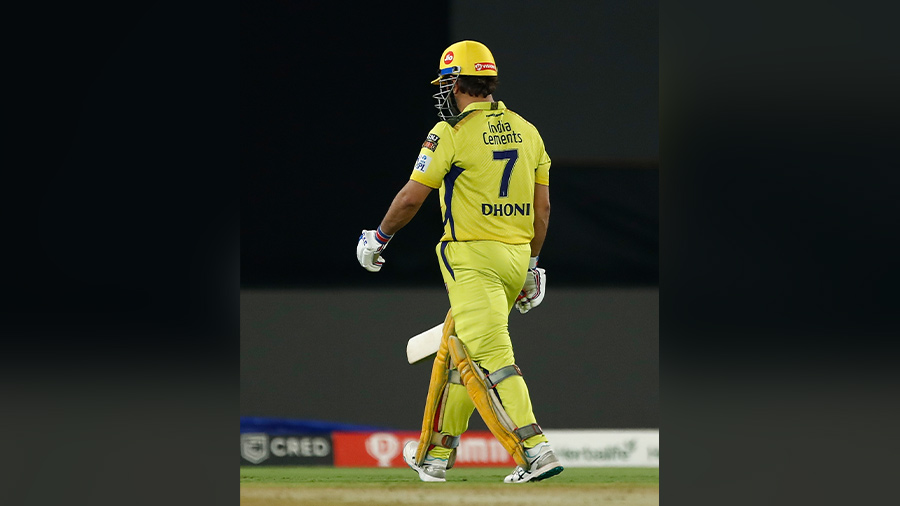
Srikkanth watched hours of M.S. Dhoni’s T20 batting to detect a weakness, which he passed on to Varun Chakravarthy Getty Images
What have been the most satisfying tactical moves that you have pulled off for KKR till date?
There was one season where K.L. Rahul was playing [Sunil] Narine very well and batted against us quite well. So, I sat down and tried to figure out what to do against him. Over the course of the next three seasons, he didn’t score more than 60 runs against us. Of course, plans alone don’t give results. Players have to execute it. Another time was when I had suggested to Dinesh Karthik in 2018 to use pace up front against M.S. Dhoni. Most teams were using spin, which was allowing Dhoni to settle down. I wanted us to take Dhoni out of his comfort zone. It worked, his early dismissal made a difference of about 25 runs and we ended up winning the game. In subsequent games, Dhoni got out to Varun Chakravarthy three times in nine balls. All those wickets were planned, the outcome of a lot of research. I had noticed that Dhoni had a problem against Narine, but I wanted to know if it was just against Narine or a general issue against off-spinners. So, I watched hours and hours of footage and figured something out. I passed it on to Varun who took it on board. I don’t know if Dhoni is going to play one more season, which is why I’m not going to reveal what I had found out!
Who have been the toughest players to strategise against?
Players evolve over time, so you have to be careful about that. One dilemma is what to do when you don’t execute your plans against a particular player and they do really well against you. Do you stick to the same plan or change it? In any case, Evin Lewis is one player who has always had an upper hand against the Knight Riders. Quinton de Kock has also scored runs against us of late, as has Surya [Suryakumar Yadav], who’s a good friend. In fact, I don’t think we’ve been able to execute our plans against Surya.

‘Gautam Gambhir didn’t spend too much time on analytics, as he was a very instinctive captain’
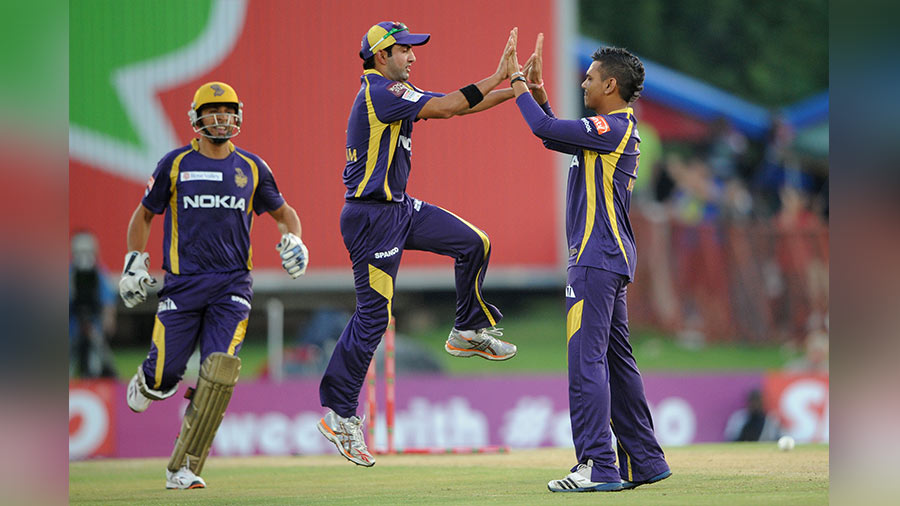
Srikkanth and Gautam Gambhir enjoyed a great relationship during the latter’s stint as captain of KKR Getty Images
Who are the players that depend a lot on analytics? And is the culture of a team and its relationship with analytics shaped by the attitude of the captain?
Captains don’t set the culture as such. It’s mostly the individuals. I know by now what to give and what not to give to players. I always try to remember that I’m there to support the players, not to dictate to them.
As far as players and their relationship with analytics is concerned, it comes down to their understanding of the game. For example, Dhoni has been vocal about not thinking too much about tactics, but I’m sure he watches a lot of matches. Otherwise his instincts can’t take over in match situations. One of the things Dhoni does really well is that he stops his bowler and changes the field whenever a batter is in good flow. This is why Dhoni’s fielders always need to be looking at him. A good example of this is Venkatesh Iyer’s dismissal this season (against the Chennai Super Kings in Chennai). Iyer had hit Deepak Chahar for two boundaries when Dhoni halted proceedings and changed the field. Next ball, Iyer got out at slip, even though the bowler had bowled the exact same delivery. All this comes with cricketing acumen, which can’t be coached.
In terms of KKR players, Gauti [Gautam Gambhir] didn’t spend too much time on analytics, as he was a very instinctive captain. I had a great relationship with him. I also adore Kieron Pollard as a captain, because tactically he’s very good. I just need to give them a little bit of insight (for the Trinbago Knight Riders) and that’s all he needs. He’ll come back to me when he needs anything else, which is an indication that my plans are working.

‘With Shubman Gill, I saw him play one ball and knew he’d be a good fit’
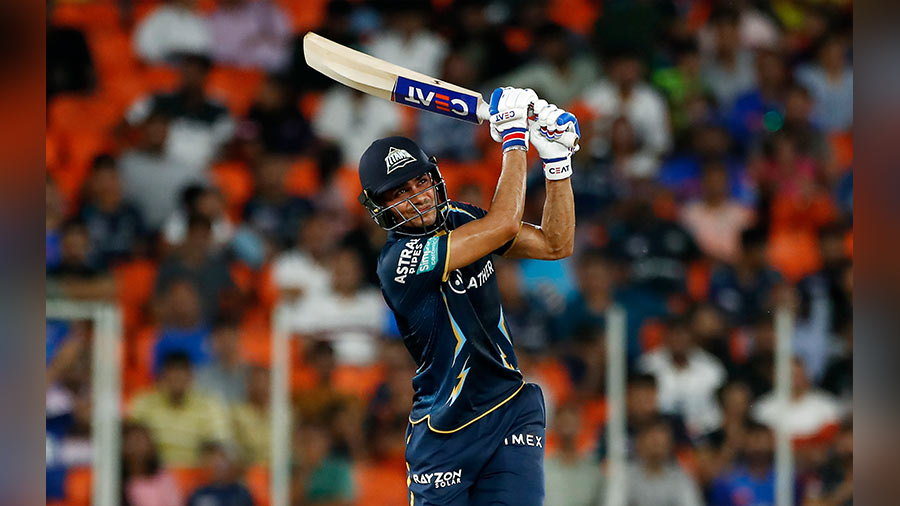
Srikkanth was the man who first alerted KKR about the need to sign Shubman Gill, who has since gone on to play for GT Getty Images
How do you go about spotting talent and then integrating them into the KKR fold?
The process differs depending on different coaches and captains. With Shubman Gill, I saw him play one ball and knew he’d be a good fit. With Rinku Singh, it was something similar. I don’t go by the numbers or what other people say. I go purely by my instincts. I’ve had more hits than misses, and as long as my process is working for me, I’ll stick to it. Once I like a player and if they fit our team composition, I recommend them to the higher management. We might or might not get them at the auctions, that’s really unpredictable. Sometimes I might need to validate my instincts on a player, so we might call them in for trials. Then we come together as a group and decide what to do.
Do the owners have any say over recruitment at KKR?
No, they don’t.

‘I remember telling Dinesh Karthik that Cameron Green would be the next big thing in 2019’
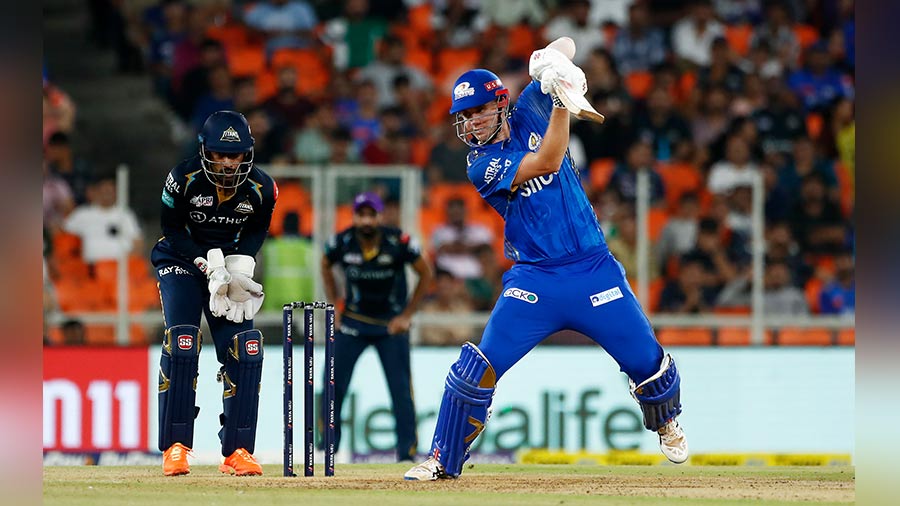
Srikkanth believes that Cameron Green could have been purchased by KKR for as little as Rs 20 lakhs back in 2016 Getty Images
Do you regret spotting any player and then not being able to get them at KKR in all these years? For example, we came to know that you tried to convince Gautam Gambhir to get Rashid Khan before he was picked up by the Sunrisers Hyderabad but it did not work out.
There are no regrets. But I remember telling Dinesh Karthik that Cameron Green would be the next big thing in 2019. We could’ve got him for Rs 20 lakhs at the time (Green was bought in 2023 by the Mumbai Indians for Rs 17.5 crore). I had been asking for Harry Brook to be a part of the IPL auction for almost four to five years, but for whatever reason, it didn’t work out. I spotted Jofra Archer several years ago, before he played in the Bangladesh Premier League (BPL). The owner of the Khulna Tigers is a good friend and he wrote to me, asking for an X-factor player. I had suggested Archer’s name at the time and they (the Khulan Tigers) picked him. A few years ago, I was in Australia watching the Big Bash League (BBL), when I saw Jhye Richardson bowl for two overs. I immediately texted Simon Katich and told him that Richardson is going to play for Australia very soon. Katto asked me how I can say that after watching someone for just two overs. Two months later, Richardson was picked by Australia.

‘Spotting talent for me depends not on performance, but on potential’
Do you mostly spot talent during the off-season? What are the things you look for?
I watch cricket all the time, as much cricket as possible. Every single day I watch at least one match. Spotting talent for me depends not on performance, but on potential. If a player scores a hundred, that’s not everything for me. Because they may have scored their runs in a freakish way or the bowling may have been poor. Rather, I study the manner in which a player plays. Even if someone scores 30 runs but does so dominating the attack and by changing the momentum of the game, I note that down.
What are the biggest positives for KKR at the end of last season?
We have a very strong core of Indian players, which is a massive positive. One of the things we missed in 2023 was the availability of Shreyas Iyer as a premier Indian batter. Once he’s back into the fold next season, we should be much more powerful as a unit.

‘Bilateral series will make way for franchise tournaments, but Test cricket and the ICC tournaments will remain’
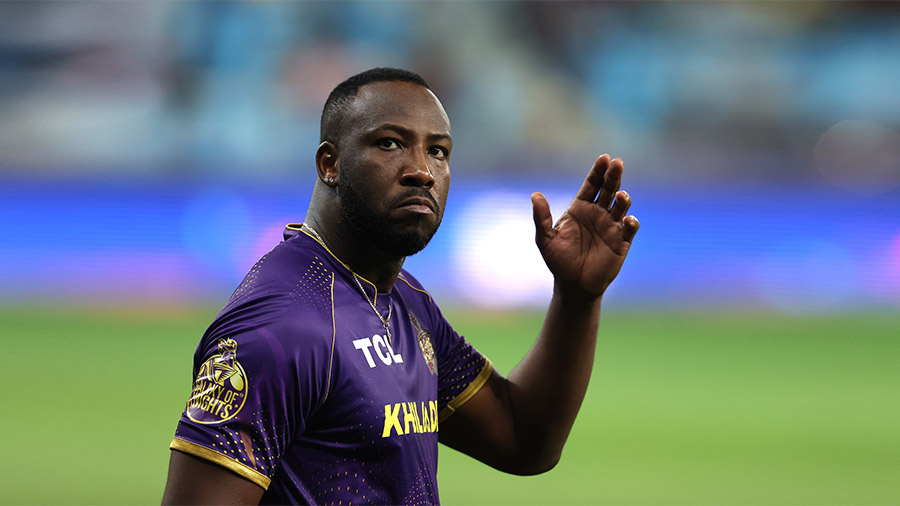
Srikkanth explains how T20 specialists like Andre Russell are already changing the dynamics of franchise cricket Getty Images
Given the way franchise cricket is evolving, do you see more players being snapped up by an entity like the Knight Riders and then playing for all its franchises across different leagues and countries?
It’s happening already. For example, [Andre] Russell and Narine play for four of our franchises (KKR, Trinbago Knight Riders in the West Indies, Los Angeles Knight Riders in the US and Abu Dhabi Knight Riders in the UAE). I don’t know about the Indian players because we don’t know if they’ll be allowed to play in foreign leagues anytime soon. But it’s definitely going to happen with more and more international players. I believe that cricket will go the football way. Bilateral series will make way for franchise tournaments, but Test cricket and the ICC tournaments will remain.
What are your future goals and ambitions? Given that you had a prior stint with the West Indies national team (between 2019 and 2021), would you be open to working with the Indian team or other national outfits?
I don’t want to go to national teams, I don’t have the bandwidth for that. My goal is to be with the Knight Riders. I want to make the Knight Riders into title contenders on a global scale, no matter the competition.
How do you zone out? What do you like to do when you are not watching cricket?
Tell me something, is there any day on which there is no cricket to watch?!
But you must have some hobbies or other interests too, right?
Yes, I do! I don’t watch every minute of every match. So, in my spare time, I love watching movies. I also love travelling, driving, exploring wildlife and spending time with family.

‘I don’t think anyone can tell you how much information to give to the players’
Lastly, your advice to budding cricket analysts.
Watch as much cricket as possible to better understand the game. There’s always room for you to learn something or the other. I don’t think anyone can tell you how much information to give to the players. That’s for you to figure out.
